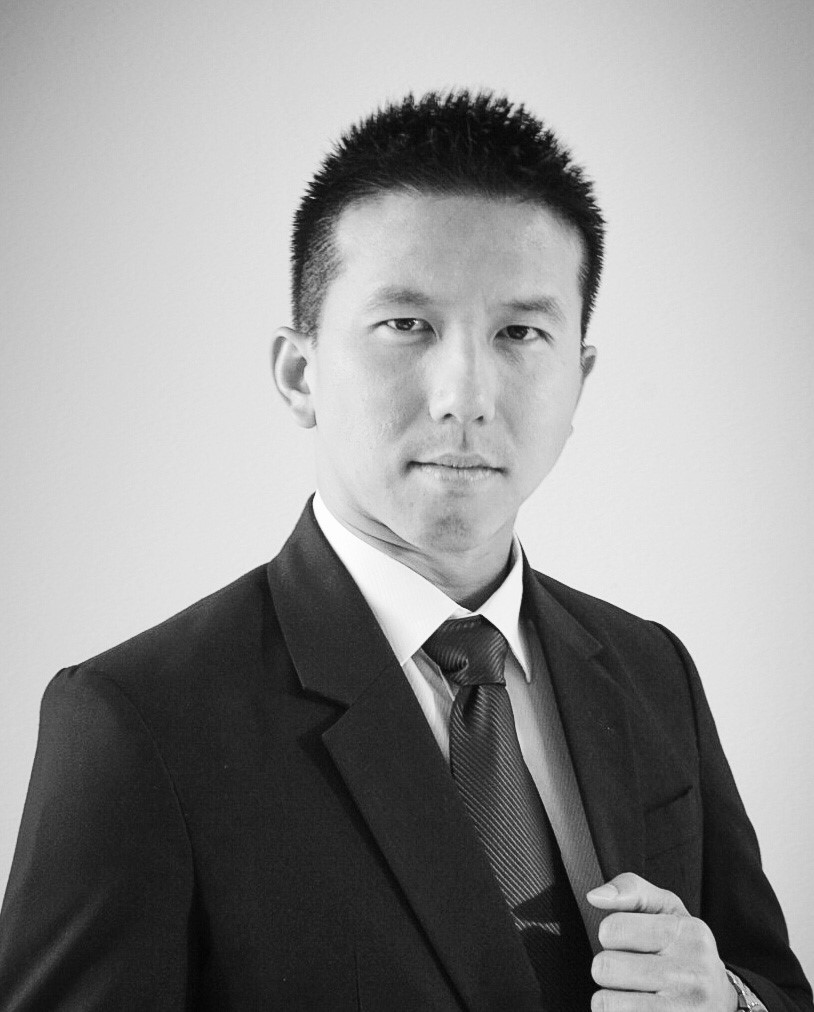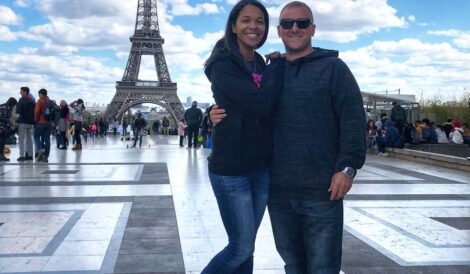Success Stories is a One Savvy Dollar series where we interview millennials successfully pursuing financial freedom through real estate.
The aim is to inspire you into building wealth through real estate because; “real estate is an imperishable asset, ever-increasing in value. It is the most solid security that human ingenuity has devised. It is the basis of all security and about the only indestructible security”.- Russell Sage
Today’s feature is Sam who has successfully built his multi million dollar real estate portfolio. Enjoy!
Can you tell us a bit about you?
Hi, my name is Sam Fong. I made my first investment once I turned 18. I began investing in stocks with earnings from selling on eBay, then branched out to private lending and real estate within 3 years.
Currently, I work at a private equity firm focused on commercial real estate investments, with approximately $1 billion in investor equity.
Personally, I buy residential properties in the San Francisco Bay Area to renovate, rent out, or sell. I also acquire commercial properties to collect cash flow.
When did you decide to get into real estate and build a multi million dollar real estate portfolio? What was the aha moment for you?
Like many others on this journey, I was inspired by reading Rich Dad, Poor Dad when I was 17. I decided to learn how to invest and began by teaching myself how to invest in stocks.
I studied obsessively for hours every day for several months, then took the first step of making an investment once I turned 18.
Then I spent the next few years refining my investing knowledge and networking extensively with other successful investors.
Three years later, another successful friend offered me a syndication opportunity in a multi million dollar apartment community. I then used a portion of the capital I earned from stocks to begin investing in real estate
To build wealth, you can either start a business, invest in the stock market or real estate. Why real estate?
Well, I guess I do all three wealth-building activities! I like real estate as an investment because of the opportunity to use leverage to enhance your investment returns.
Strategically using debt or various other financing structures provides you with the ability to take on larger investment opportunities.
Creativity, vision, and problem-solving are required for the best returns.
Additionally, real estate investing is a very social activity, where deals are often generated from trusted relationships that you’ve spent years building and cultivating.
Most people think you have to quit your job to invest. Did you keep your job or are you involved in real estate full time? How has the experience been (either way?)
My career in private equity has a lot of synergy with my personal real estate activities because it’s in the same industry – real estate.
However, you don’t need to quit your job to invest in real estate. If you have time but no money, you can put in the “sweat equity” of sourcing real estate deals, project management, marketing, and other value-add work.
If you have money but no time, you can simply invest as a partner – provided you understand what you’re doing.
Keeping your job actually gives you access to more real estate deals, because you can more easily acquire cheap traditional financing. Many, though not all, lenders like to see steady paychecks and income sources when they qualify you for financing.
Tell us about your first property How did you find it? How much did it cost and do you still own it?
Surprisingly, I found the deal on the MLS (Multiple Listing Service), where agents list homes online.
Often, deals come from referrals and connections, but this South San Francisco property was sourced through months of checking the MLS for suitable properties.
I negotiated the price to $485,000, which is an absolute steal for pretty much any location in the Bay Area where properties are easily in the multi million dollar range. Together with a partner, I bought it with all cash and closed in less than two weeks.
This was important because there’s often a lot of competition for deals here – cash and speed help significantly with closing a deal. I later bought my partner’s interest and sold the property for $700,000 after performing renovations.
What are some mistakes you’ve made during your real estate investing journey?
I’ve underestimated buyers’ parking needs, which lowered my property’s profit potential. One of my properties was a challenge to sell because parking was quite limited.
Prospective buyers and tenants needed to park on another street because the street the property was located on didn’t have enough parking.
I ended up negotiating a deal with a neighbor to use their vacant space as parking for my property.
While I would still have invested in this particular property, I would have lowered my return expectations if I had been aware that this could be a significant issue. Nonetheless, it was a great learning experience.
Was there any time during your journey where your friends and or family challenged your plans to get involved in real estate?
My family definitely challenged my plans in real estate. Growing up in an Asian household, my parents expected me to get a degree in medicine or engineering.
Unfortunately, I had no interest in those subjects, and pursued entrepreneurship and investing instead.
My parents gave me a lot of dire warnings and stern reminders about what could go wrong, which was helpful in the sense that I became more risk-averse.
I made sure my numbers and assumptions were correct and reasonable. I wanted to make money, but I also wanted to prove that I could be successful on my own terms.
Challenges can be a good thing because they give you more motivation to succeed.
Do you invest in state or out of state and which would you consider to be harder?
I primarily invest in-state for residential properties. Many investors I know invest out-of-state because property values are so much cheaper, but there are a host of issues that come with investing out-of-state.
One conversation really drove this home for me. A friend of mine built a professional operation from scratch in order to source, acquire, and manage out-of-state properties.
Over several years, he and several partners built several in-house teams located in those states and acquired hundreds of properties together.
However, he revealed to me that all those properties came with a large administrative burden, and the profit, although substantial, wasn’t necessarily worth the trouble of keeping all those properties.
I like to have control over my investments, and managing residential properties out-of-state seems unrealistic with my schedule.
Were any resources such as blogs, books, podcasts particularly helpful to you to get started on your multi million dollar real estate journey?
I learned primarily through networking, seminars, workshops, and mentors. When I started investing, there wasn’t the wealth of information that’s available online today.
I felt an urgency to learn everything I could, as quickly as possible, because of the principle of compounding returns. The earlier you start, the more your investment returns can compound and keep growing.
That means that by starting earlier, you can actually invest a smaller amount of money and still earn superior returns, compared to someone who invested more capital but started years later.
Over the years, that makes a big difference in your wealth and net worth.
Let’s talk about leverage: would you advice reinvesting your profit to pay down the loan or acquiring more multi million dollar properties using your profits?
I think it only makes sense to pay down the loan if your interest rate is too high. In our current environment of historically low-interest rates, it usually doesn’t make sense to pay off the loan faster.
In most cases, you’re much better off reinvesting your profits.
The caveat I’d mention here is that it’s important to establish and maintain an operating reserve, or a number of contingency funds to be used in case of emergencies or unforeseen events.
Those events could be a loss of income, delayed payments, COVID-19, or unexpected repairs. Those funds should be liquid, meaning that they can easily be converted to cash for these types of events.
If you could go back in time and advice your 18-year-old self, what advice would you give him?
Dream bigger. Working with larger numbers produces greater results. Focus on increasing earnings in addition to staying frugal. If you keep working at night, you’ll reach your goals faster.
If you could do it all over again, what would you do differently?
I’d use much more leverage instead of relying on my own earnings and capital gains.
You can only progress at a certain rate from your own efforts – if you’re interested in building a multi million dollar investment portfolio, so I’d focus on working with more people and making more deals.
That would significantly accelerate your results.
What advice would you give anyone who is trying to buy their first investment property and build a multi million dollar real estate portfolio like you?
Learn as much as you can first. Like my mentor, who runs a portfolio of over $1 billion in assets, says: “Real estate is a fantastic way to make a lot of money… it’s also a fantastic way to lose a lot of money.”
It’s important to be knowledgeable about any investment you undertake because otherwise, it’s just gambling. Seek out mentors and knowledge so that you can stack the odds in your favor.
What markets do you primarily invest in and which do you avoid completely?
I mainly invest in the San Francisco Bay Area and strong, out-of-state metropolitan areas.
I try to completely avoid areas where local laws are too unfavorable against property owners because that will just bring unnecessary headaches.
How can our readers keep in touch with you?
Feel free to add me on LinkedIn with a brief message about yourself. You can also follow me on Instagram for tips on money, investing, and travel to 40+ countries.
________________________________________
Congratulations Sam! Wishing you much success in your multi million dollar real estate investing journey!
Get the ebook: Don’t Buy Real Estate Until you Read This: 7 Steps For Buying a Profitable Rental Property.
Take a course: The Blueprint to Building Your Six Figure Real Estate Portfolio




